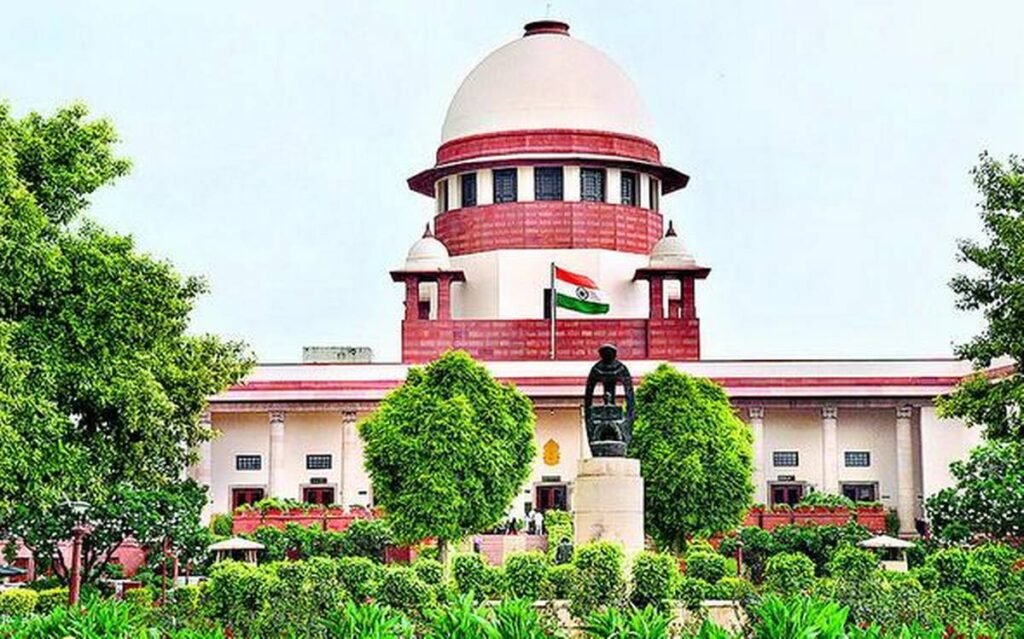After 31 days of relentless hearings and more than 90 hours of legal crossfire, the Supreme Court of India has reserved its judgment in the landmark Gameskraft case — a decision that could redefine the very future of India’s ₹1.50 Lakh Crore real-money gaming industry.
In courtroom after courtroom, some of the nation’s sharpest legal minds have sparred over not just tax disputes, but existential questions — the legality of skill-based games, the limits of taxation, and the power struggle between state and central governments.
This is more than a court battle. For poker rooms, rummy platforms, fantasy sports leagues, and online casinos, it’s a fight for survival, jobs, and investor confidence.
Also Read: Supreme Court Ruling, Corporate Repositioning, and Flutter’s $1.76B Sports Betting Deal

The Tax Tsunami That Started It All
At the heart of the storm lies the government’s imposition of a 28% Goods and Services Tax (GST) on the Gross Bet Value — the full amount players deposit to join a game. While platforms have complied with this new regime since October 2023, the real flashpoint is the retrospective application of this tax all the way back to 2017.
Industry lawyers, led by heavyweights like Dr. Abhishek Manu Singhvi, Harish Salve, and Arvind Datar, argue that taxing the entire entry pool — rather than the platform’s actual commission or “rake” — results in an effective tax rate of over 100%, making business models economically impossible.
“It’s like taxing a supermarket on the value of all its inventory, not its profits,” one counsel remarked.
The government, however, counters that player deposits are “actionable claims” and the face value of the bet is the “consideration” for the supply, akin to how lotteries are taxed.
Skill vs. Chance — The Core Legal Divide
Beneath the financial debate lies a foundational question: are games like poker and rummy games of skill, or do stakes transform them into gambling?
The industry leans on decades of Supreme Court precedent, arguing that skill-based games are protected as legitimate business activities under the Constitution. Adding a monetary stake, they insist, does not change the character of the game.
Government lawyers see it differently — arguing that the online format, with algorithms, constant availability, and anonymity, blurs the line and brings these games into the fold of gambling, justifying higher taxes and tighter restrictions.
States vs. Centre — A Parallel Battle
The case also involves appeals from states like Tamil Nadu and Karnataka, which attempted blanket bans on online real-money gaming, only to be struck down by High Courts.
The states argue they have constitutional power to legislate on betting and gambling to protect public health and order. The industry counters that online platforms operate across state borders and fall under the Centre’s jurisdiction — pointing to the 2023 IT Rules as proof of a national regulatory framework.
The Court’s verdict here could redraw the boundaries of state and central authority in the digital economy.
Also Read: The Battle for India’s Online Gaming Future: Supreme Court Weighs in
The Industry on Edge
For operators, this legal marathon has been costly. Listed companies like Delta Corp have reported shrinking margins, while start-ups face investor hesitation. Compliance costs have soared, legal fees have piled up, and hiring freezes are becoming more common.
The final ruling could either:
- Affirm the government’s stance, potentially bankrupting large swathes of the sector, or
- Side with the industry, allowing growth under a clear tax and regulatory regime.
Judgment Day Approaches
With hearings closed, the Court has asked for final written submissions. Separate hearings will address valuation rules for casinos and horse racing, but the core questions — taxation base, skill classification, and jurisdiction — now rest with the bench.
For now, India’s real-money gaming industry stands at the edge of a cliff, peering into two very different futures. One brings clarity, stability, and renewed investment. The other risks are collapse and mass job losses.
When the judgment drops, it won’t just decide the fate of companies — it will set the rules of the game for an entire digital industry.
Content Courtesy: Pokerguru


1 Comment
Pingback: Shannon Shorr Wins $352K in $25K High Roller Showdown - Poker News India – Latest Poker News, Tips, Strategies, Reviews, Blogs & More